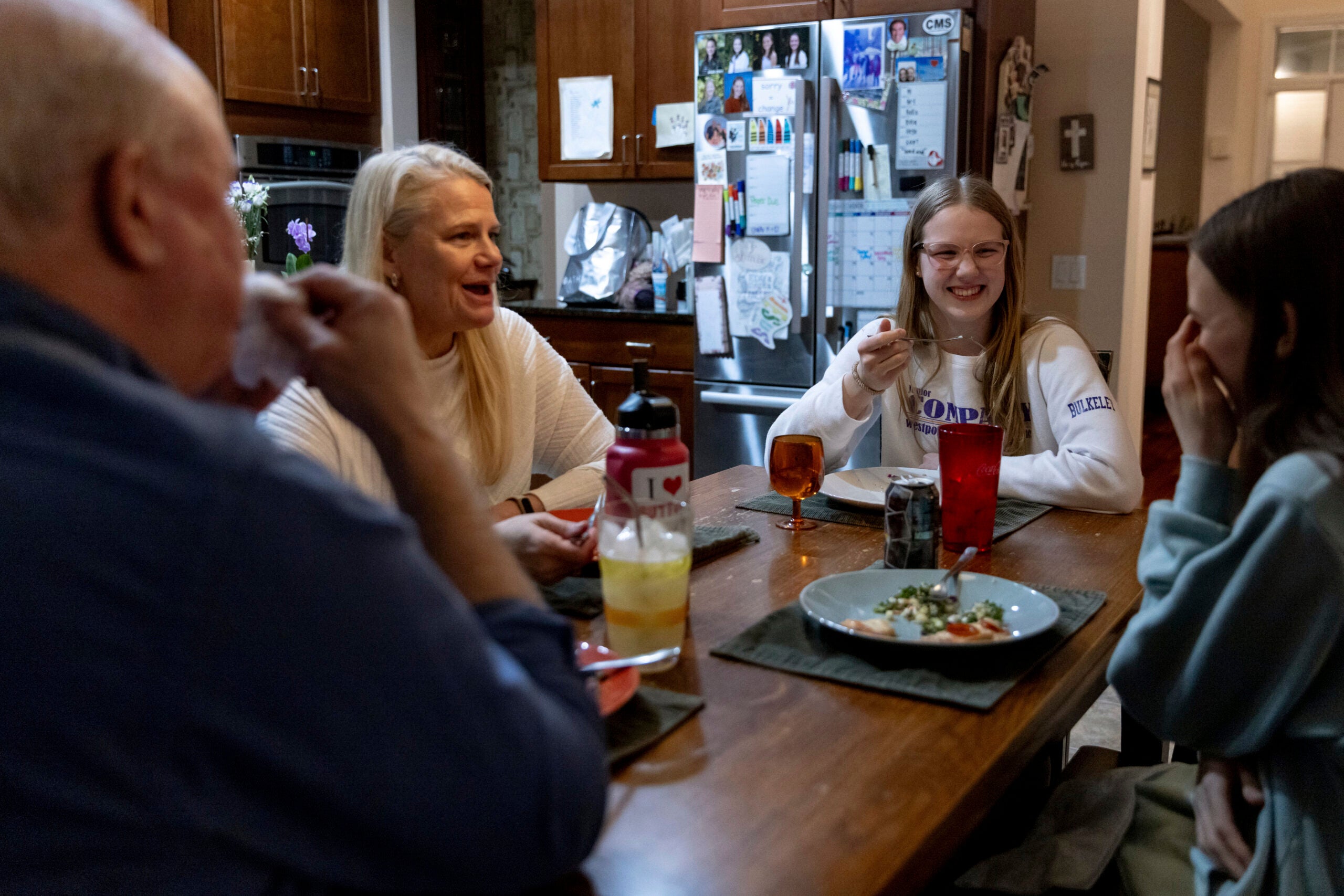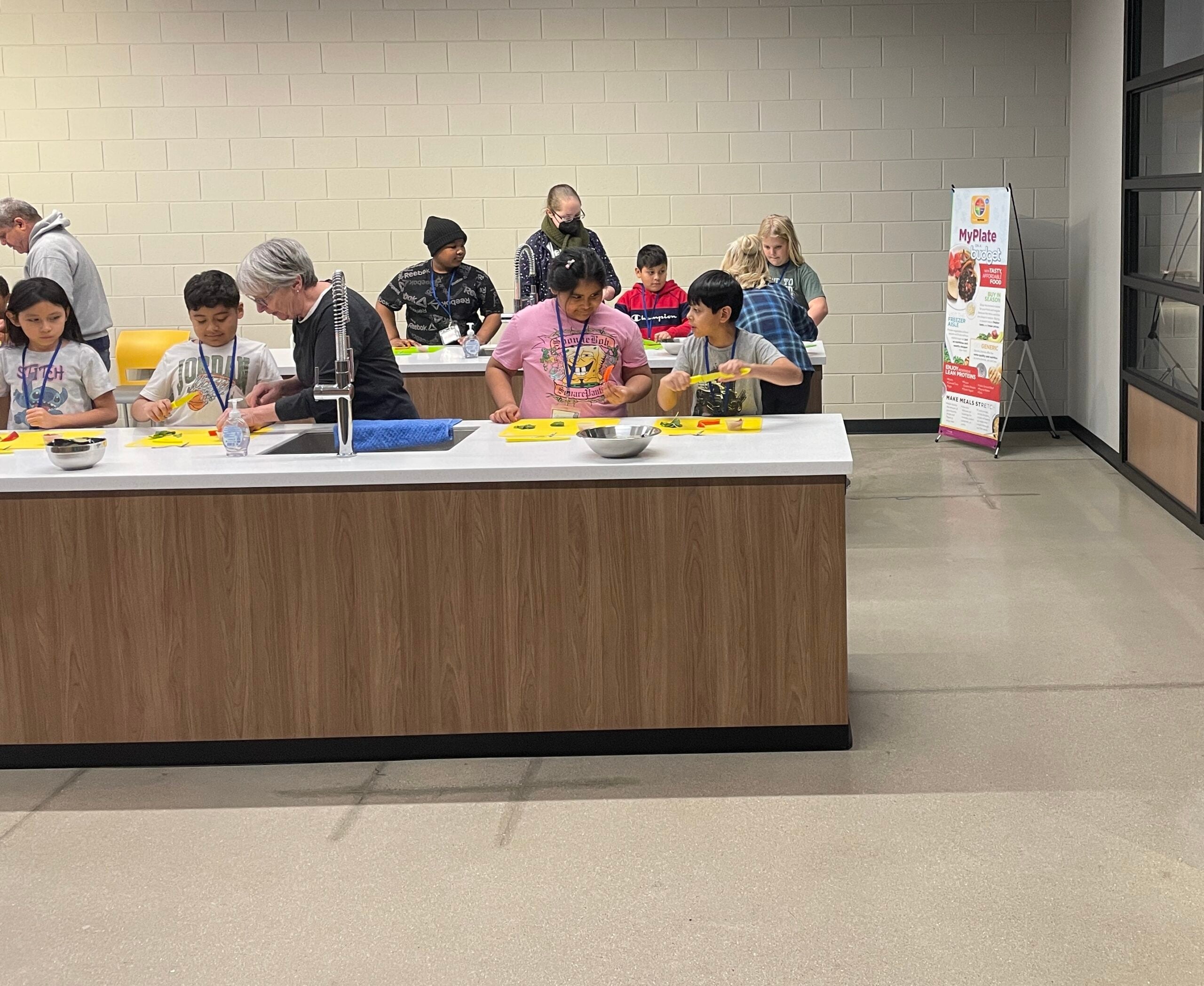On my weekly radio show, I recently talked about the latest research that shows fussy eaters might have a genetic component.
A study published in the Journal of Child Psychology and Psychiatry compared the eating habits of identical and nonidentical twins who were living in the same household.
If one identical twin was a picky eater, the other often was, too. But with nonidentical twins, that link was not nearly as strong, suggesting a genetic component.
Stay informed on the latest news
Sign up for WPR’s email newsletter.
Picky eating tends to peak at around age 7 but often endures into early adolescence and then, for many kids, tapers off. As kids get older, outside influences like what their friends eat become more relevant, so picky eating tends to subside. But not for everyone.
When I saw this study, I thought about how Penny and I raised our kids — we were never short-order cooks who would cater to each kid, and we always had a wide variety of foods in our house. Our kids are now adults who eat pretty much anything.
There was a book written more than a decade ago, “French Kids Eat Everything,” by Karen Le Billon, about how her family moved to France and gained insight on how the French feed their kids. She developed several rules for promoting better eating.
The list below is mostly from Le Billon, and I’d consider them not hard-and-fast rules but more like very good suggestions. So I’d like to review them, with my comments.
8 rules to encourage better eating
The following rules from author Karen Le Billon have been adapted and expanded on by Dr. Zorba Paster.
Rule No. 1: Parents, you are in charge of food education. This is really important. What your kids eat now affects how they eat in the future.
Rule No. 2: Parents, you are in charge of the meals — what you eat and when you eat it.
Rule No. 3: Parents and kids should eat together. This is incredibly important. It might not be every meal, but it should be one meal a day, at least most days. And I think it’s important to have one special meal every week — it might be a Friday night meal or a Sunday lunch, but eating together is so important, more than those extraneous sports events that often take precedence. We did this with our kids.
Rule No. 4: Eat those veggies. Think variety and choose different ones. Pick ones your kids like.
Rule No. 5: You don’t have to like it, but you do have to taste it. That should apply to your kids at every meal. It’s important to introduce them to different textures and tastes, especially when they are young. Our grandchildren love broccoli and cauliflower, not just the texture but because they can pick it up with their fingers — and because they look like little trees.
Rule No. 6: No snacking. The French are absolutely strict about this. They think, rightly so, that it’s OK to be hungry between meals. There are exceptions to this rule, obviously, like right after your kid’s soccer game. But if you reduce snacks, you increase appetite when dinner is made.
Rule No. 7: Slow food is happy food. Eat together, enjoy each other’s company, shut off and remove the phones from the table, no distractions, and no TV while you’re eating. This is Family Time — I put that uppercase for a reason, to show the importance. Eating should be a joy, not a race to chow down.
Rule No. 8: Eat mostly real food. You’ve most likely seen the information about highly processed foods. It’s true. We now think that the more food is processed, the worse it is for us. And I’m not just talking about the proverbial Twinkie, the king of a processed dessert. But try, as much as you can, to eat foods with fewer ingredients.
Michael Pollan put this so eloquently in his book, “In Defense of Food.” Real food takes time to prepare. Sometimes we are so interested in watching the game or shepherding our kids from one event to another that we don’t take enough time to teach them something incredibly important — that frozen pizza is OK occasionally, but not five nights a week.
OK, I’m probably exaggerating. But what I am saying is that making food that is good, tasty and nutritious is as important as a kid’s grade point average in school.
My spin: Better eating is home education — don’t take it for granted. Stay well.
This column is the opinion of the author, © Copyright 2025. Dr. Zorba Paster is a family medicine physician practicing in southern Wisconsin. Consult a health care provider for personal health information. The opinions expressed aren’t meant to reflect the views of Wisconsin Public Radio, its employees, the University of Wisconsin-Madison or the Wisconsin Educational Communications Board.
Zorba Paster On Your Health airs on WPR News Saturdays at 1 p.m. and Sundays at 6 p.m.





